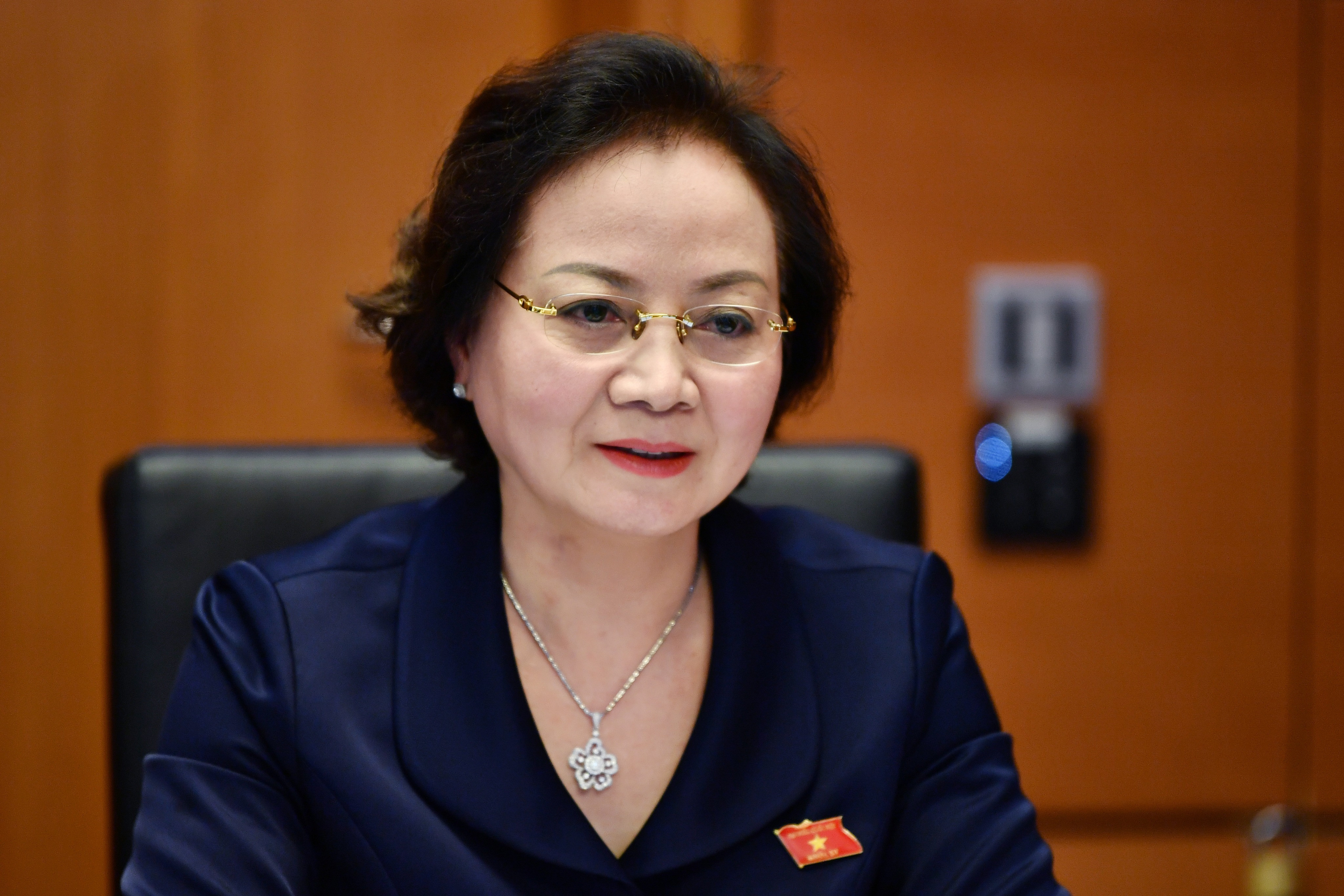
Minister of Home Affairs Pham Thi Thanh Tra said wage reform policy will be ratified at the sixth session of the 15th National Assembly.
“This is will be a highlight and a historical milestone of the 15th National Assembly tenure,” Tra said.
She stressed that wage reform can only be carried out after the great efforts of the political system, all levels and sectors, including the effort to create resources for the reform.
“Despite the Covid-19 pandemic, the worrying problems in the world and in Vietnam, and difficult economic conditions, Vietnam is still determined to fasten its belt and arrange enough capital for the reform,” Tra said.
Prime Minister Pham Minh Chinh said before the National Assembly at the opening session that VND560 trillion have been arranged for wage reform, from July 1, 2024 to 2026.
Tra also mentioned the great effort by agencies and units to reorganize the apparatus and streamline the workforce.
“This is really a revolution in staffing. This generates important resources that serve wage reform,” Tra said.
One of the key factors leading to the success of the reform is the government’s efforts to improve the civil service institutional system, from amending laws, resolutions and decrees to restructuring civil service that can satisfy the requirements of the new conditions.
Tra went on to say that wage reform will not only improve the living standards of cadres, civil servants and public employees, workers and their families, but also improve productivity and national competitiveness.
Also, wage reform will create the driving force for economic growth. Once people’s incomes increase, this will affect the supply and demand situation.
The reform also aims at reshuffling, reorganizing and improving the personnel quality in a streamlined, effective and efficient manner.
The groundbreaking reform
About the content of wage reform, Tra said the new wage policy has been designed with a groundbreaking mindset which pursues global trends and fits the socialism-oriented market economy.
The new payroll is designed based on workers’ positions and leadership titles which will replace the payroll applied since 2004.
“Vietnam has gone through four wage reforms but I have not seen such a comprehensive one before. The new wage policy is really progressive, fair, harmonious and reasonable,” Tra said.
“The new salary policy has been restructured to calculate the basic salary rate (70 percent) and allowance rate (30 percent). It eliminates all specific salary policies and supplements 10 percent of the basic salary, so that heads of agencies can give awards to the officials and civil servants who complete assigned tasks very well,” Tra explained.
Under the spirit of Resolution 27, agencies now enjoying specific salary scheme will see wages unchanged.
The resources are sufficient to carry out reform from July 2024 to 2026. After 2026, if Vietnam cannot have reasonable plans, it will be difficult to continue implementing the new wage policy.
Therefore, Tra emphasized the priority task in the time to come is generating sustainable financial resources.
“How to collect tax to increase the state budget revenue and what to do to practice thrift in expenditure to ensure enough resources for wage reform will be the matter of concern,” Tra said.
The minister also emphasized that people need to heighten their awareness of wage reform. She warned that problems may arise during the period of shifting from the old wage scheme to the new one, which is built on the basis of workers’ positions.
One of the most important goals of the reform is increasing salaries for civil servants in the educational and healthcare sectors. The current salaries for the educational and healthcare sectors are believed to be too low, which discourages workers in these fields.
During wage reform, the apparatus of agencies will be restructured and personnel streamlined which aims at reducing the number of people receiving salaries from the state. Reasonable restructuring will help create more resources to carry out wage reform.
Thu Hang